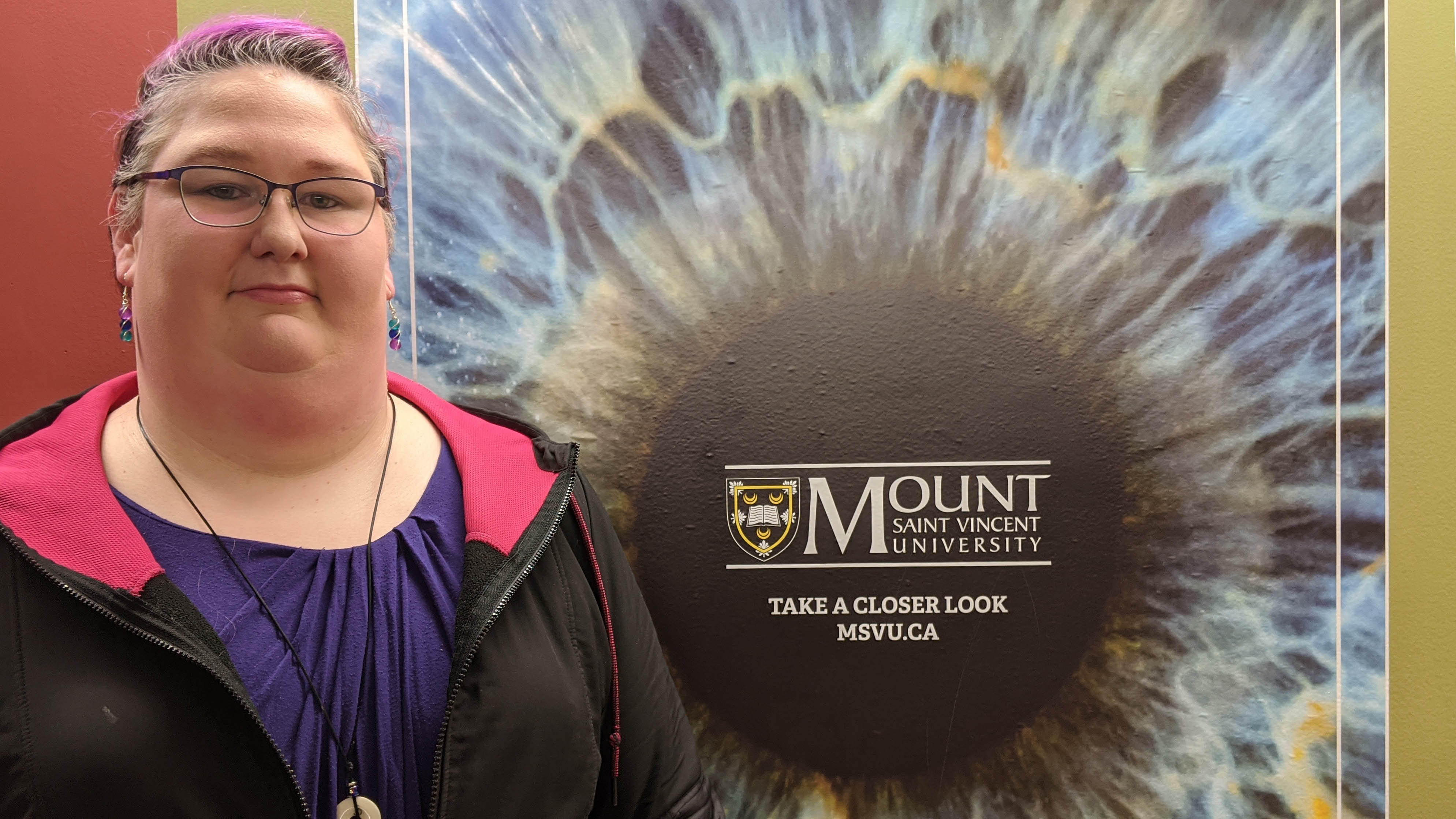Almost 1,000 bankruptcy claims in Nova Scotia last year included student loans
Nearly 17 per cent of bankruptcies filed in 2019 included student loans

caption
Selina Pottle at MSVU, where she accumulated $70,000 in student debt as a former student.In 2017, Selina Pottle found paying back her student loan while living her life was no longer feasible. So she filed for bankruptcy.
“I thought, there’s no way that this is going to be sustainable to try and get this to go away,” Pottle said during an interview at Mount Saint Vincent University (MSVU), where she attended until 2010.
“I didn’t want it to stain my tax record, I didn’t want it to stain my credit score for any longer.”
Pottle is one of thousands of Nova Scotians who file for bankruptcy in Nova Scotia annually. Related stories
In 2019, there were more than 5,700 bankruptcy filings in the province. According to the Office of the Superintendent of Bankruptcy Canada, nearly 17 per cent of those (954 filings) included student loans. Across the country, 13 per cent of filings included student loans.
Pottle received student loan funds every year for the seven years she attended MSVU. She was on a repayment assistance program until 2012, when she was reconsidered because of her marriage. Afterward, payments became too much for her to handle.
Pottle explained she was concerned the debt would weigh heavily on her family. She considered bankruptcy in 2015, and after speaking with a trustee in 2017, determined it was the best option. Her bankruptcy filing took place seven years after she graduated, a condition when filing for one type of bankruptcy.
In 2015, Statistics Canada reported about 61 per cent of Canadian graduates of bachelor’s programs owed more than $25,000 upon graduation. The average debt owed was $41,000.
Pottle called the realization that she was filing bankruptcy “bleak.”
“There were a lot of feelings of shame. I failed, I shouldn’t have gotten my degree, I shouldn’t have gotten an education, and that was really awful because I value education so much,” Pottle said. “I would never otherwise say that I regretted my time here, I just didn’t have a way to pay off the debt.”
Pottle completed two bachelor’s degrees: one focusing on English, the other a two-year education program.
A 2019 survey conducted by Ipsos Group, a global market and opinion research firm, found 46 per cent of Canadians agreed they would be embarrassed to seek help for bankruptcy. The same survey also determined the majority of Canadians were sympathetic to those who file for bankruptcy.
About 37 per cent of Canadians reported those who declare bankruptcy are looking for “the easy way out of their financial problems.” But in Atlantic Canada, 74 per cent of people disagreed with that stance.
Eric Findlay, senior vice-president and insolvency trustee with the accountancy and business advisory firm MNP in Halifax, was surprised to hear how many bankruptcy filings included student loans.
He agreed students shouldn’t look at bankruptcy as a simple way out, but as a last resort.
“We always encourage people to make full use of all of the provincial and federal government programs that are available to help with students who are experiencing troubles repaying their loans,” Findlay said. “So, things like interest relief and interest-free periods and things of that nature.”
Findlay noted that most bankruptcies are a result of multiple debts owed, which makes Pottle’s case rare because she only owed money for student loans.
Pottle’s credit report will reflect her bankruptcy filing for a total of six years. Afterward, she can begin improving her credit.
“We are, by no means, living a life of luxury now that I have gone through bankruptcy but it is a weight lifted off of our shoulders,” Pottle said.
“Maybe not the best option for everybody to file for bankruptcy, but if you are drowning in debt and you cannot see a way out, why not do whatever you can so that you can survive and take care of yourself and your family.”
About the author
Dayne Patterson
Dayne Patterson is a recent graduate student at the University of King's College. He's reported from all over Canada, including B.C., Alberta,...
